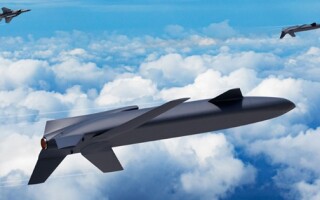Sensor monitoring system expected to increase defense depot worker's safety
NewsMarch 29, 2018

WOBURN, Mass. Lockheed Martin Aeronautics (LM-Aero) and Aptima are working together to improve worker's safety in the U.S. Air Force and other defense depots by developing a new Confined Space Monitoring System, which aims to deliver continuous real-time monitoring of worker locations, their vital functions, and surrounding environmental conditions, improving detection and injury prevention.
Under two contracts with a total value of $4.3 million awarded to Aptima, engineers are accelerating the transition of technologies developed through the Small Business Innovation Research (SBIR) program. The monitoring system was conceived in response to the Air Force Sustainment Center’s “Complex of the Future,” which aims to increase worker safety, reduce costs, and boost efficiencies across all Air Logistics Complexes (ALCs), where military aircraft are maintained and readied for service.
The new system uses sensors worn by maintenance and repair workers to transmit their physiological, environmental, and location data to a central monitoring station. Algorithms assess and classify their health and safety status by interpreting heart rate, breathing, motion, air quality, and other indicators. A single operator using the Confined Space Monitoring System can readily monitor the “green, yellow, red” health status of multiple workers simultaneously. Should the system sense or identify a problematic worker state, its built-in decision support will coordinate appropriate interventions and emergency response.
“The ‘sense, assess, augment’ capabilities of this system are a direct result of Aptima’s SBIR work with the Air Force Research Laboratory’s 711th Human Performance Wing over the past 10+ years,” says Mr. Kevin Durkee, Lead for Aptima’s Adaptive Augmentation Technologies (A2T) capability. “We recognized back then the potential to transition sensor-based technologies and big data modeling approaches from the laboratory to the field. Monitoring of confined spaces in Air Force maintenance depots is a natural and useful application of the technologies we’ve developed.”
The system also incorporates is the use of non-GPS-reliant tracking for maintaining locational awareness of workers at all times. Whereas GPS-based signal tracking can be impeded inside hangars, metal enclosures, and confined spaces, the new monitoring system can pinpoint a worker’s position with high accuracy and position without a GPS connection, expediting assistance should they become incapacitated or injured.
Aptima and LM-Aero’s development of a system of networked sensors and algorithms to intelligently monitor the health and safety of workers is supported by a $2.9 million contract from the Department of Defense Rapid Innovation Fund (RIF). A companion tool to provide timely assessments using the output from the system developed under the RIF contract is being developed by Aptima, LM-Aero and the University of Toledo through an additional $1.4 million SBIR Phase II.5 contract.
The prototype system will be installed at Warner Robins Air Logistics Complex (WR-ALC), positioning it for acquisition and operational usage, followed by delivery across other Air Force weapon systems. The system also has the potential for use in any domain in which workers must perform in potentially dangerous confined spaces such as disaster relief, search and rescue, and fire and safety, as well as military Subterranean (SubT) special operations.






